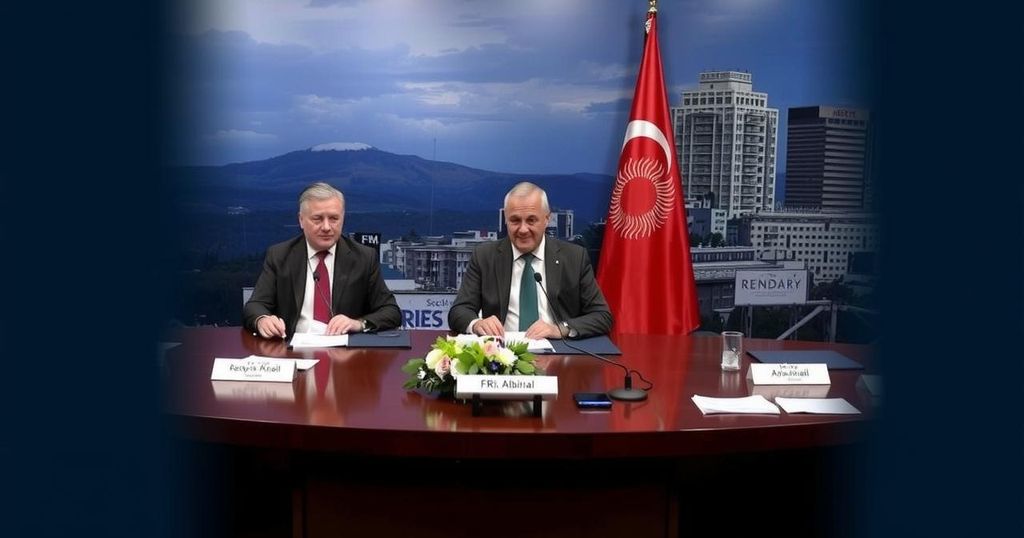COP29: Albanian PM Calls for Action Amidst Rising Emissions and Empty Pledges

During COP29 in Baku, Albanian Prime Minister Edi Rama questioned the summit’s effectiveness, noting that the biggest polluters continue unchanged while calling out the need for real action against climate change. He, along with other leaders like UN Secretary-General Antonio Guterres and Antigua’s Prime Minister Gaston Browne, urged richer nations to fulfill financial obligations to support climate initiatives and vulnerable populations threatened by climate impacts.
At COP29 in Baku, Albanian Prime Minister Edi Rama voiced his concerns over the efficacy of the summit, questioning its purpose when the largest carbon emitters seemingly persist in their harmful practices. Observing the leaders’ lack of direct engagement, he remarked, “Life goes on, with its old habits, and our speeches – full of good words about fighting climate change – change nothing.” UN Secretary-General Antonio Guterres also echoed this sentiment, emphasizing the urgent need for wealthy nations to fulfill their climate commitments, particularly towards vulnerable island states affected by rising sea levels. Multiple leaders, including Pakistan’s Prime Minister Shehbaz Sharif and Antigua’s Gaston Browne, reiterated the call for increased financial support for climate initiatives rather than debt-inducing loans. While the summit aims to formulate robust climate policies, the necessity for action beyond mere rhetoric remains critical. New initiatives proposed include the establishment of a loss and damage fund and the transformation of financial frameworks to ensure justice and support for developing nations dealing with climate challenges.
The COP29 summit in Baku serves as a platform for global leaders to address pressing climate issues and create actionable strategies to combat climate change. Recent reports indicate a rise in carbon emissions since the last conference, raising alarms about the effectiveness of prior agreements. The discussions revolve around holding major polluting nations accountable, enhancing climate financing, and ensuring that vulnerable states receive the necessary support to adapt to and mitigate the impacts of climate change. The voices of leaders from nations most affected by climate change amplify the need for immediate, meaningful action rather than empty promises.
In summary, COP29 has highlighted a critical moment for world leaders to reflect on their commitments to tackling climate change, as voiced by figures like Edi Rama and Antonio Guterres. Leaders from various nations insist on the urgency of delivering real solutions, particularly in providing financial support that does not exacerbate existing debts for developing countries. The summit reinforces the idea that collective action is imperative for significant progress against the climate crisis, as current emissions trajectories remain alarmingly high and commitments have yet to translate into effective policies.
Original Source: www.theguardian.com






